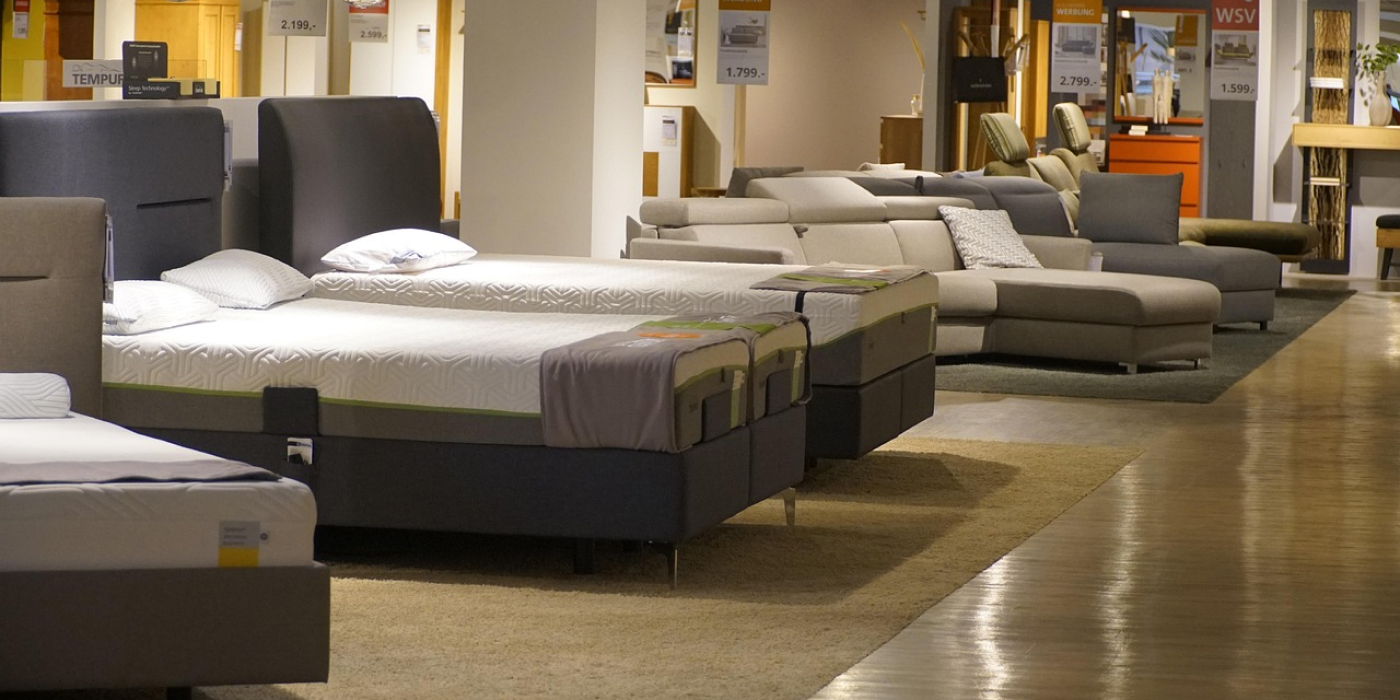Furniture Retail Trends to Watch in 2025
From brick-and-mortar expansion to immersive technology implementation, furniture retailers are adapting to changing customer expectations and providing more tech-driven, customer-centric experiences. As consumer expectations continue to shift toward convenience and customization, furniture retailers are refining their business models to make the furniture shopping experience more efficient, seamless, and enjoyable.
Here’s a look at four furniture retail trends to watch this year.
Customers Value Hybrid Shopping Experiences
Hybrid shopping has become the primary way consumers buy furniture, according to a new furniture shopping trends study from 3D Cloud. Nearly half of shoppers use both online and in-store channels when furniture shopping, highlighting the need for retailers to offer a seamless omnichannel experience. Forty-six percent of shoppers visit websites first before purchasing in-store; while 58% want better visualization tools when shopping in person. As customers continue to shop across online and offline channels, retailers who embrace a hybrid model and invest in technologies that enhance customer experiences and ensure frictionless omnichannel shopping will attract more customers in the future.
Online Retailers Turn to Brick-and-Mortar Expansion
Online furniture retailers are expanding their brick-and-mortar store fleets as they aim to increase sales, expand their customer base, and improve their last-mile fulfillment capabilities. Wayfair plans to expand its physical store footprint in the year ahead. The online retailer will open its second large-format store in Atlanta, Georgia in 2026. The 150,000 sq. ft. space will offer an immersive, one-stop shopping destination for all things home. The product assortment will include furniture, home decor, housewares, and home improvement essentials across all styles and budgets. The store’s proximity to Wayfair’s fulfillment center in McDonough, Georgia will enable the retailer to provide customers fast delivery service as same-day delivery demand continues to grow.

Retailers Deploy Augmented Reality and 3D Visualization Tools
Furniture retailers are increasingly implementing new tools, like augmented reality and 3D visualization, making it easier for online shoppers to visualize how products will fit into their homes before purchasing. These technologies allow customers to experiment with different styles, colors, and arrangements in a virtual space, reducing uncertainty and enhancing decision-making. These tools can help retailers increase customer engagement, reduce returns, and boost buyer confidence.
City Furniture has been deploying technology from 3D digital asset management and product visualization solution provider 3D Cloud since summer 2024. Utilizing the 3D Cloud 360 Spins, WebAR, and City Furniture 3D Room Planner tools, customers can examine products from any angle with interactive 360 spins and see furniture in their space with augmented reality functionality. Shoppers can also design entire rooms in 3D using the City Furniture 3D Room Planner solution, enabling greater customer engagement and increasing customer satisfaction.
Personalized Shopping Journeys
Consumers are increasingly looking for furniture that reflects their personal style. Artificial intelligence is playing a significant role in personalizing the shopping experience. Retailers are tapping into artificial intelligence to offer personalized product suggestions based on browsing and purchase behavior. Additionally, tools that offer AI-powered design suggestions and customization options are empowering customers to create unique aesthetics tailored to their personal tastes and spaces.
Wayfair is providing customers with shoppable product suggestions that are personalized with artificial intelligence. The retailer has launched Muse, a generative AI-based tool designed to give customers an easy way to find inspiration and ideas for their homes. Muse focuses on a visual browsing experience designed to let users quickly navigate through rich imagery, search for any style, and explore or apply those styles to build personalized collections. The solution links customer searches to Wayfair’s catalog, offering shoppable suggestions and complementary items, making it easier for customers to find products that align with their personal preferences.
The future of furniture retail will be shaped by a blend of digital advancements, customer-centric business models, and omnichannel shopping. Retailers that embrace digital tools, prioritize personalization, and focus on innovation will be the ones who thrive in the evolving furniture industry.
For more information about how our delivery management solution can help you manage your deliveries more efficiently, please contact info@bringoz.com.
